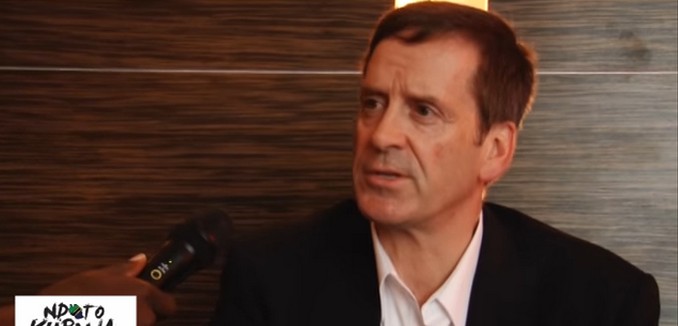Former congressman and U.S. ambassador to Tanzania Mark Green called on the international community to pay greater attention to Iran’s ongoing human rights violations in an op-ed published Thursday in The Hill.
Green argued that Iran will never be able to “realize its full potential” in the wake of the nuclear deal until it ceases “its systematic and ongoing violations of human and political rights.”
He pointed out that Iranian President Hassan Rouhani promised to both end Iran’s international isolation and address civil rights while running for office in 2013. Despite these pledges, after more than two years in power, most Iranians “would be hard-pressed to identify progress on Iran’s human and political rights record,” Green wrote. “[Promises] to increase equality between men and women, assure equal rights for Iranian ethnicities, allow minorities to practice religious rituals, revive the Association of Iranian Journalists and enable uncensored access to information have not materialized.”
Green noted that during Rouhani’s administration, Washington Post reporter Jason Rezaian was arrested, tried, and convicted in “a sham trial,” while Iran’s means of censorship and monitoring social media have become more sophisticated, “driving dissent even further underground.”
The former ambassador also observed that Rouhani never spoke about the arrested leaders of Iran’s 2009 pro-democracy Green movement, or indicated that he would do anything to expedite their release.
With next month’s parliamentary elections failing “to meet minimum international standards for free and fair elections,” Green said that he holds out little hope for internal political reform in Iran. He concluded by calling on the international community to focus on Iran’s “human and political rights violations” with an eye towards helping facilitate change.
Experts have long observed that under Rouhani, the persecution of Iranian religious and ethnic minorities, women, and journalists increased alongside a climbing execution rate.
The human rights situation in the Islamic Republic continued to deteriorate even after the announcement of the nuclear deal, which helped strengthen hardliners in the regime. The recent crackdown on political dissidents and reformists, including the disqualification of 99% of so-called reformist candidates in the upcoming elections, was long predicted by critics of the nuclear agreement.
[Photo: Tanzania Bora / YouTube ]




